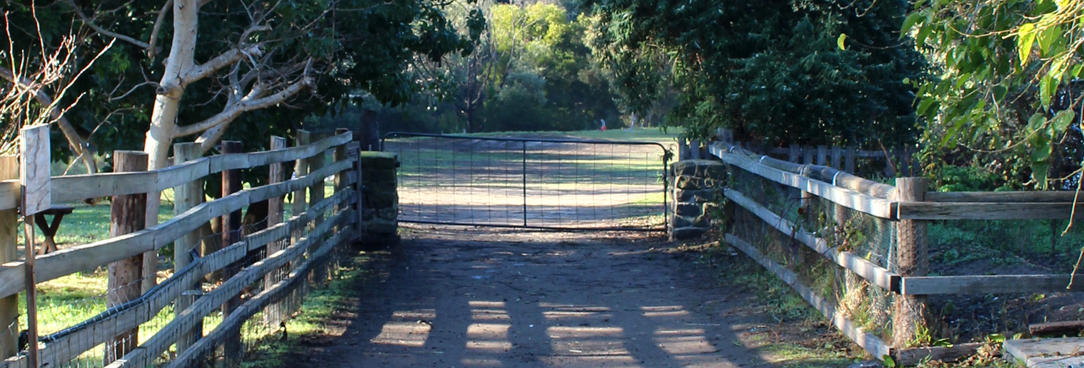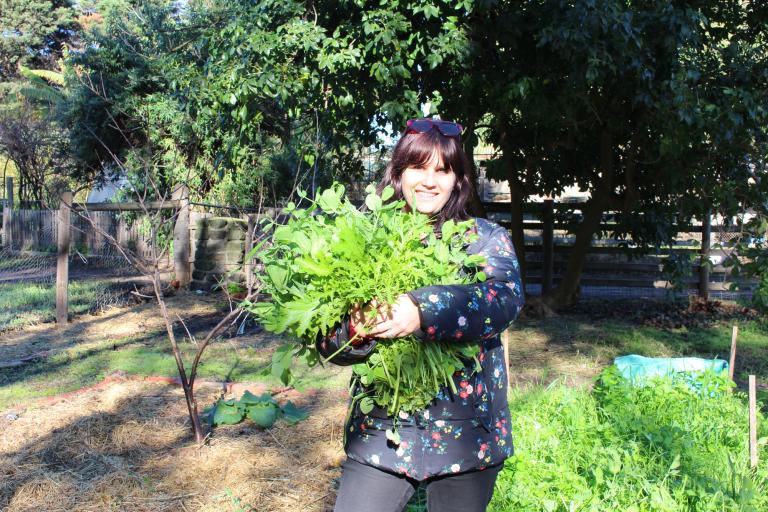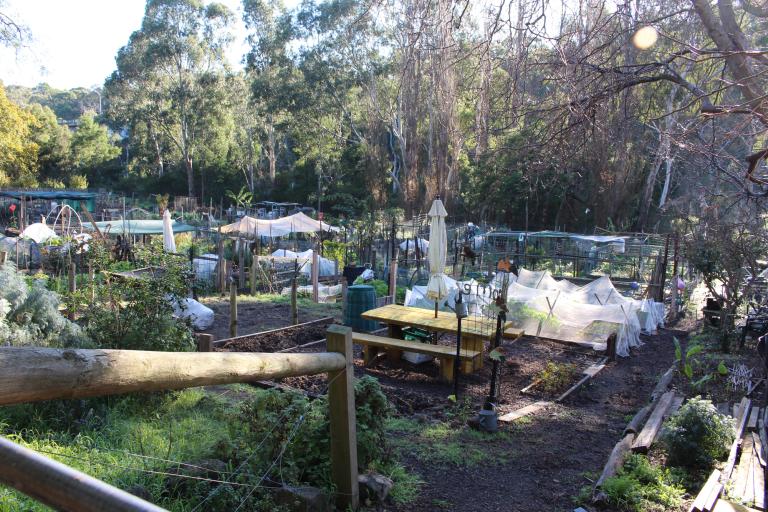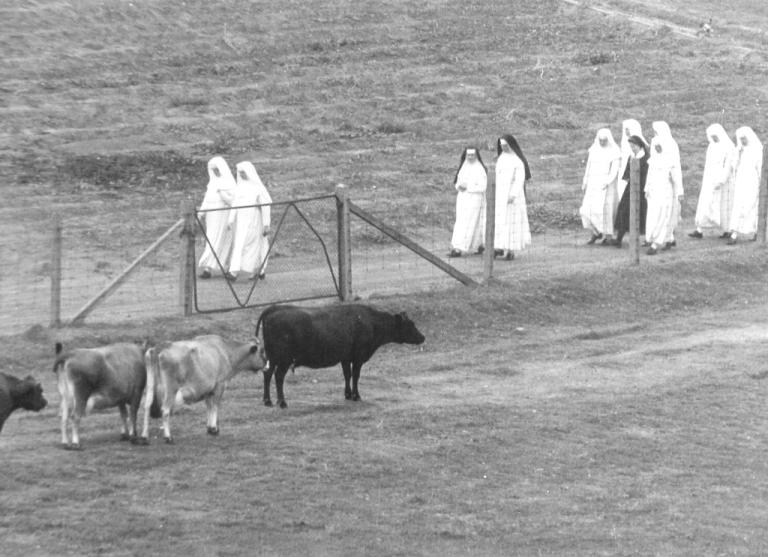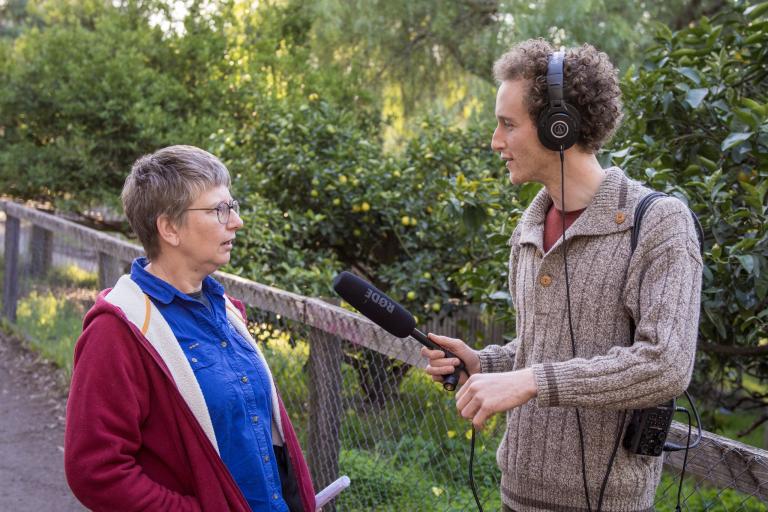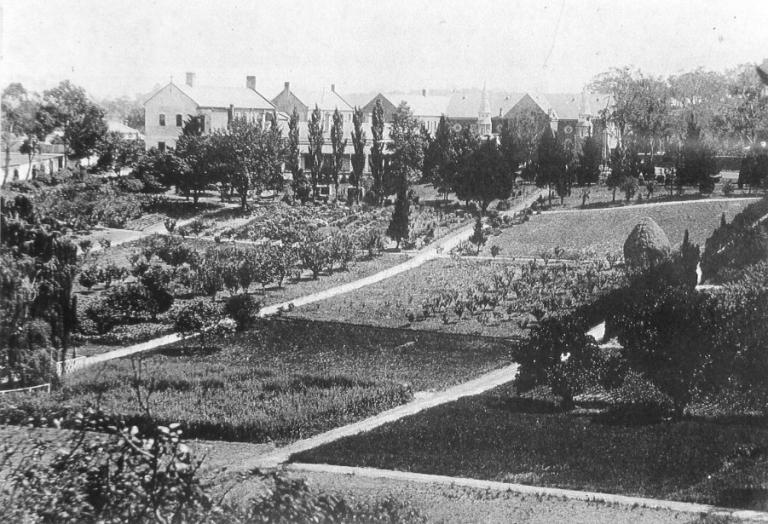
Author: Natasha Cantwell
Communications & Public Programming Officer
As we take a walk around Collingwood Children's Farm (CCF) on a beautifully crisp winter’s morning, General Manager Conor Hickey’s enthusiasm for her workplace is barely contained. “I pinch myself all the time. I’ve got the best job in the world!” she exclaims between introducing me to Daphne the Dairy Shorthorn and a herd of Anglo Nubian goats. This year is CCF’s 40th birthday and they’re celebrating this milestone by “capturing the essence and history of the farm, and the voices of the people who love this place.” With the help of a Local History Grant, CCF are undertaking a comprehensive interview project, speaking to almost 60 people who are connected to the farm in diverse and interesting ways.
Conor explains to me that being able to promote the farm’s history is important for CCF’s survival, as they gather the community together to support them moving forward. These interviews will form the basis of educational materials and a podcast series that will “make it known to the wider community how important this place is to so many people.” While a lot of Melburnians are aware of CCF, there’s still a common misconception that it is simply a petting zoo. The project will address the lack of public knowledge around the role the farm plays in community engagement and education.
“I’ve been told that in 1979, a social worker with the Collingwood Council (I’m yet to find out their name!) decided that it would be great to make this a green space for the children living in the council flats. It would be a way for them to connect with nature, but also to connect with food. The mission statement of the farm was to support people experiencing disadvantage in the community and we’ve stuck to that ever since.”
In this current age of rapidly increasing urbanisation and over-reliance on technology, helping people to understand where their food comes from is now even more pertinent. As Conor tells me, “We have adults sometimes not knowing that cheese comes from cows”. She also points out that the noisy, concrete environment that city-dwellers spend so much time in can be a strain on our mental health. CCF’s easily accessible green space can provide a much needed nature break for both visitors and those working at the farm.
The farm’s vibrant community has been made up of many volunteers, committee members, special education school groups, community farm groups, young farmers and community gardeners over the years. A cross-section of their stories will be recorded as part of this project, including an interview with Pam Morgan, who was involved in setting up the farm and managing operations for an impressive 22 years.
However, the story doesn’t just start with Pam - it goes back much further, because while CCF is only 40 years old, it’s actually one of the oldest continuously farmed pieces of land in Victoria. Originally farmed by the Wurundjeri, then colonial settlers and the Sisters of the Good Shepherd, this land has had a long and contentious history, which is important for understanding how and why CCF came about.
CCF are planning to interview members of the Wurundjeri Council about the cultural significance of the land and waterways, which includes many important sites, such as nearby Dight’s Falls, that continues to be a meeting place for Kulin Nation tribes.
Sister Monica Walsh and Sister Margaret Kane (who is the last living sister to have been working the farm when it was under the Good Shepard's care) are also on-board to discuss the years of 1863-1975 when the Abbotsford Convent was active. Originally established to care for women in need, at its peak the convent was the largest charitable institution operating in the southern hemisphere, housing over 1,000 women and children, who were sustained by the on-site vegetable and fruit gardens, dairy and poultry farms and piggery.
All the interviewees so far have been passionate about the farm, but Conor recalls that the enthusiasm of the Abbotsford Convent Coalition really stood out. This group of local residents banded together in 1997 to save the convent and surrounding land from re-development into an apartment complex. With support from the public and the media, they spent seven years campaigning for the historic buildings to be retained and the site transformed into the arts, educational and cultural precinct that it is today.
When I visited CCF, the interview project was well underway, with over 40 interviews already recorded and about 15 left to go. Conor says she is grateful to all of the interviewees who have given so generously of their time to share their stories, as well as to the company responsible for collecting and curating the digital content for this project, Pur Production and its director, Patrick Beggs, who is the technical mastermind behind the interviewing and editing process.
Over twenty hours of footage will be edited down to a series of three podcasts, each looking at a different era: Wurundjeri history, the colonial and Sisters of the Good Shepherd history, and the 40 years of CCF. These will be available online, alongside written transcriptions of the full interviews, and a short video. The next phase of the project will be to develop interpretive signage around the farm and train up CCF staff to incorporate the farm’s rich history into their tours.
CCF is aiming to launch the podcasts at the farm’s 40th birthday celebration on 3 November 2019. The event will also include a series of talks, exhibitions and a “farm TARDIS” - an old newsstand kiosk is being transformed by participants of CCF’s Young Farmers Program into an art installation, using brochures, newspaper clippings and photographs from the farm’s history to take visitors on a trip back in time. The public will also have the opportunity to add their voice into the mix and record their personal connection to the farm.
As we head back towards the farm’s main entrance, past all the families and excited children, Conor reflects on the future of the farm and how its relevance will continue to increase in upcoming years.
“Given our climate crisis, spaces like this are becoming more and more important. It’s a place for the community to come together and connect around environmental and sustainability issues and for young people to see that there is a community that is working towards mitigating these crises.”
It’s a community that has been working hard for more than 40 years, with stories that are long overdue for being celebrated. This year, the farm’s fascinating history will step into the spotlight, as Conor and her team help to ensure CCF’s future is just as bright as its past.
Learn more about the Local History Grants and view the full list of recipients on the grants section of our website here.
Material in the Public Record Office Victoria archival collection contains words and descriptions that reflect attitudes and government policies at different times which may be insensitive and upsetting
Aboriginal and Torres Strait Islander Peoples should be aware the collection and website may contain images, voices and names of deceased persons.
PROV provides advice to researchers wishing to access, publish or re-use records about Aboriginal Peoples
